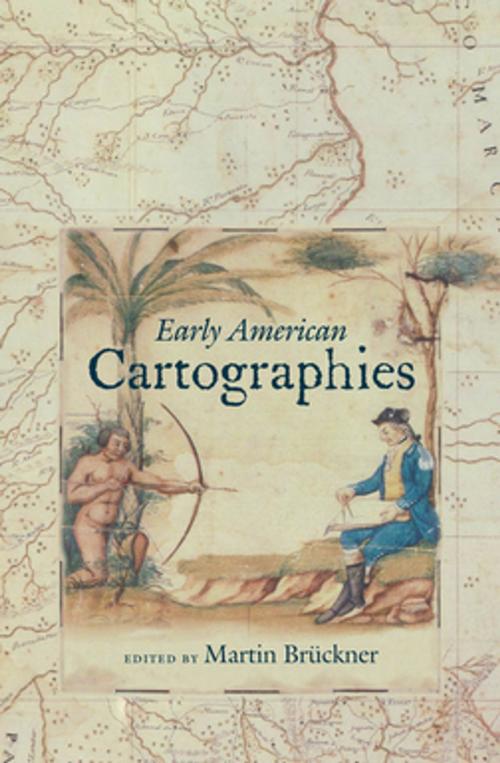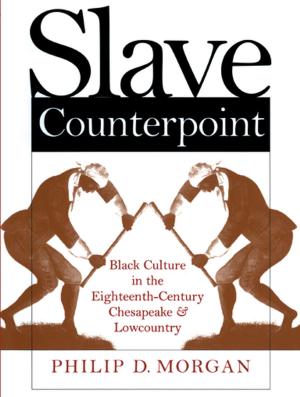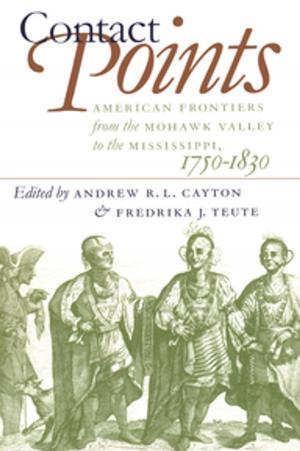Early American Cartographies
Nonfiction, Social & Cultural Studies, Social Science, Human Geography, History, Americas, United States, Colonial Period (1600-1775), Art & Architecture, General Art, Art History| Author: | ISBN: | 9780807838723 | |
| Publisher: | Omohundro Institute and University of North Carolina Press | Publication: | December 1, 2012 |
| Imprint: | Omohundro Institute and University of North Carolina Press | Language: | English |
| Author: | |
| ISBN: | 9780807838723 |
| Publisher: | Omohundro Institute and University of North Carolina Press |
| Publication: | December 1, 2012 |
| Imprint: | Omohundro Institute and University of North Carolina Press |
| Language: | English |
Maps were at the heart of cultural life in the Americas from before colonization to the formation of modern nation-states. The fourteen essays in Early American Cartographies examine indigenous and European peoples' creation and use of maps to better represent and understand the world they inhabited.
Drawing from both current historical interpretations and new interdisciplinary perspectives, this collection provides diverse approaches to understanding the multilayered exchanges that went into creating cartographic knowledge in and about the Americas. In the introduction, editor Martin Bruckner provides a critical assessment of the concept of cartography and of the historiography of maps. The individual essays, then, range widely over space and place, from the imperial reach of Iberian and British cartography to indigenous conceptualizations, including "dirty," ephemeral maps and star charts, to demonstrate that pre-nineteenth-century American cartography was at once a multiform and multicultural affair.
This volume not only highlights the collaborative genesis of cartographic knowledge about the early Americas; the essays also bring to light original archives and innovative methodologies for investigating spatial relations among peoples in the western hemisphere. Taken together, the authors reveal the roles of early American cartographies in shaping popular notions of national space, informing visual perception, animating literary imagination, and structuring the political history of Anglo- and Ibero-America.
The contributors are:
Martin Bruckner, University of Delaware
Michael J. Drexler, Bucknell University
Matthew H. Edney, University of Southern Maine
Jess Edwards, Manchester Metropolitan University
Junia Ferreira Furtado, Universidade Federal de Minas Gerais, Brazil
William Gustav Gartner, University of Wisconsin–Madison
Gavin Hollis, Hunter College of the City University of New York
Scott Lehman, independent scholar
Ken MacMillan, University of Calgary
Barbara E. Mundy, Fordham University
Andrew Newman, Stony Brook University
Ricardo Padron, University of Virginia
Judith Ridner, Mississippi State University
Maps were at the heart of cultural life in the Americas from before colonization to the formation of modern nation-states. The fourteen essays in Early American Cartographies examine indigenous and European peoples' creation and use of maps to better represent and understand the world they inhabited.
Drawing from both current historical interpretations and new interdisciplinary perspectives, this collection provides diverse approaches to understanding the multilayered exchanges that went into creating cartographic knowledge in and about the Americas. In the introduction, editor Martin Bruckner provides a critical assessment of the concept of cartography and of the historiography of maps. The individual essays, then, range widely over space and place, from the imperial reach of Iberian and British cartography to indigenous conceptualizations, including "dirty," ephemeral maps and star charts, to demonstrate that pre-nineteenth-century American cartography was at once a multiform and multicultural affair.
This volume not only highlights the collaborative genesis of cartographic knowledge about the early Americas; the essays also bring to light original archives and innovative methodologies for investigating spatial relations among peoples in the western hemisphere. Taken together, the authors reveal the roles of early American cartographies in shaping popular notions of national space, informing visual perception, animating literary imagination, and structuring the political history of Anglo- and Ibero-America.
The contributors are:
Martin Bruckner, University of Delaware
Michael J. Drexler, Bucknell University
Matthew H. Edney, University of Southern Maine
Jess Edwards, Manchester Metropolitan University
Junia Ferreira Furtado, Universidade Federal de Minas Gerais, Brazil
William Gustav Gartner, University of Wisconsin–Madison
Gavin Hollis, Hunter College of the City University of New York
Scott Lehman, independent scholar
Ken MacMillan, University of Calgary
Barbara E. Mundy, Fordham University
Andrew Newman, Stony Brook University
Ricardo Padron, University of Virginia
Judith Ridner, Mississippi State University















